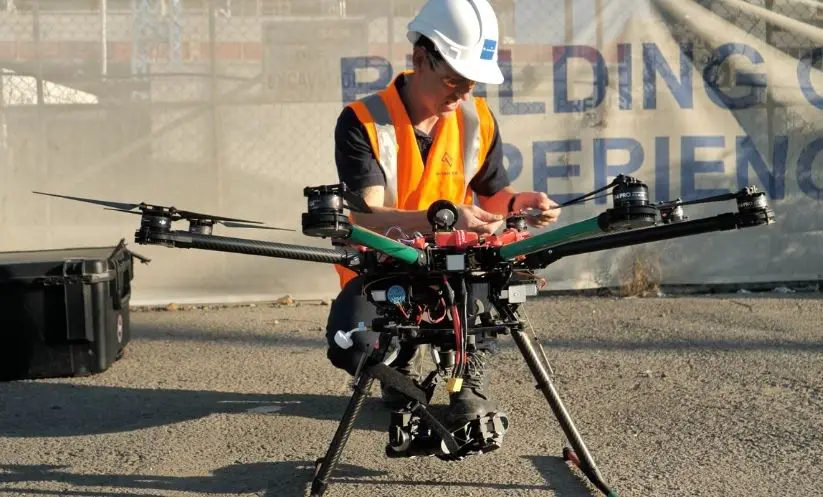The construction industry is among the industries that are continuously evolving to make construction projects and site operations more efficient and sustainable. Drones, robotics, and BIM are just a few of the key developments in the construction industry trends in 2022.
In addition, the adjustments brought about by the worldwide pandemic created the need for innovative construction methods that comply with worker safety and regulations. Due to this, there have been advancements depending on the construction company you’ll work with regarding prefabrication, construction robotics, and worker safety, along with laser scanning, wearables, analytics, and global positioning system (GPS) tracking.
Moreover, this article will dive into several of the top construction industry trends and innovations in 2024.
1 Building Information Modeling (BIM)
Building information modeling (BIM) tools are one of the most recent construction industry trends, as they allow for seamless collaboration between various project professionals. And more so, align the different trades in the design and construction field.
The traditional method necessitates collaboration from various professionals, including architects, engineers, and builders, to name a few. And because each person works on their own set of files, it can be difficult to see changes or modifications in real-time. In some cases, this can lead to multiple versions of the same plan, which often creates confusion on site.
Advanced BIM tools can help address this problem by providing a central database that allows all parties involved in a construction project to work on a single shared model. Depending on the tool you’ll use, these solutions can pinpoint any technical conflicts during the initial phases and enhance workflow efficiency. And more so, the integration of both augmented reality (AR) and virtual reality (VR) into BIM solutions allows for seamless testing in simulated environments.
2 Construction Robotics
Among the various industries today, the construction field is perhaps, one of the most labor-intensive industries. The process of finishing a construction entails repetitive and time-consuming tasks, which are believed can be completed and finished quickly using automation and robotics.
But aside from helping speed up the process, construction robotics can also aid in ensuring precision among tasks such as painting, welding, bricklaying, and other construction milestones. This can then be beneficial for project managers since it can help reduce human errors and losses.
Robotics can also automate heavy equipment for demolition, excavation, and concrete tasks, to name a few. Construction robotics can help improve productivity, reduce labor requirements, and ensure safety during hazardous tasks in any construction project.
3 Drones
Drones can help gather data in hard-to-reach locations and is an emerging construction industry trend in 2022. The images gathered can help with site assessment and inspections and even provide a better understanding of the overall progress of the project and as-built conditions.
Drones can also play a role in overseeing logistics, deliveries, and the workforce. Some construction projects use drone footage to create 3D images that professionals can compare to architectural plans.
4 Wearables
Among the various technological advancements today, innovation in wearable technologies has a lot of potential in the construction industry. Some of these include smart glasses and hardhats equipped with visualization, augmentation, and mixed reality features.
These visualization elements can be beneficial to construction because they help improve efficiency, accuracy, and safety. Smartwatches, safety vests, and health trackers, for example, are useful in the workplace because they help monitor workers’ movements to improve safety, reduce risk, and increase productivity.
5 Analytical Tools And Management Software
Professionals can use advanced analytics to scrutinize timelines, expenses, and other aspects of a construction project with a low risk of failure. The data can be highly instrumental when boosting overall productivity and efficiency.
When you have a well-thought plan of execution, it can provide insights into potential weak points, allowing the professionals to make the necessary adjustments on the go and as necessary. Additionally, analytics can also help increase the number of projects a company can tackle.
6 Laser Scanning
When evaluating work sites or current site conditions in the construction industry, laser scanning can be one of the most efficient methods. Using laser scanners to take field measurements can ensure highly detailed data in the form of point cloud data, which is a large set of points on a coordinate system.
Laser scanners are highly accurate and can showcase the true conditions of the site or facility. And in any building project, it’s highly useful to analyze possible clashes between existing conditions and new building elements. And more so, laser scanning data can be fed into BIM or CAD files, allowing a smoother integration of the plans and the actual site condition, which can lead to significant time and cost savings.
7 GPS Tracking
When you oversee a construction company that manages an equipment fleet, using GPS tracking can be beneficial. You have the option to install GPS hardware in all vehicles that’ll seamlessly communicate with your home base using satellites. Doing so will enable your company to see the location of your vehicles in real-time.
GPS tracking will become more intertwined with other systems in the future. When used with fleet tracking programs and telematics systems, it can provide real-time information about field and equipment conditions during construction projects. In most cases, the data will be routed directly to a central dashboard to improve operations.
Final Thoughts
The various advancements in the construction industry trends in 2022 have brought about better building protocols and the overall quality of the projects. Depending on the type of building project, these construction industry trends and innovations can help ensure superior results while ensuring the safety of the workers on the site.
